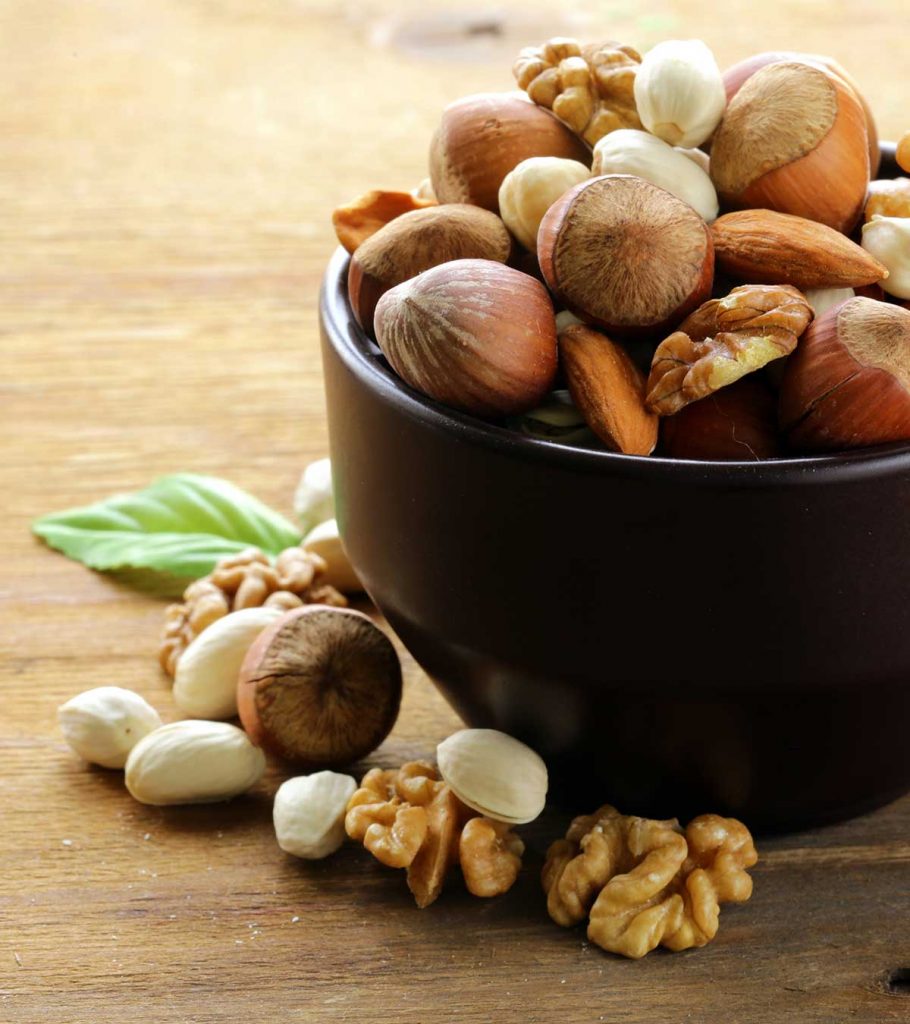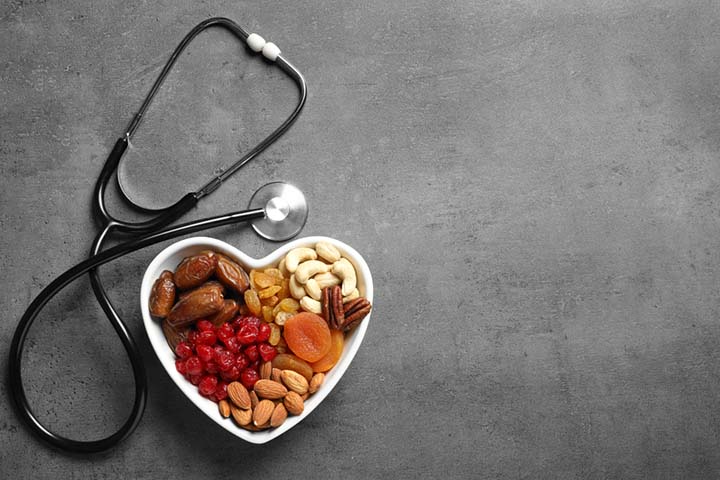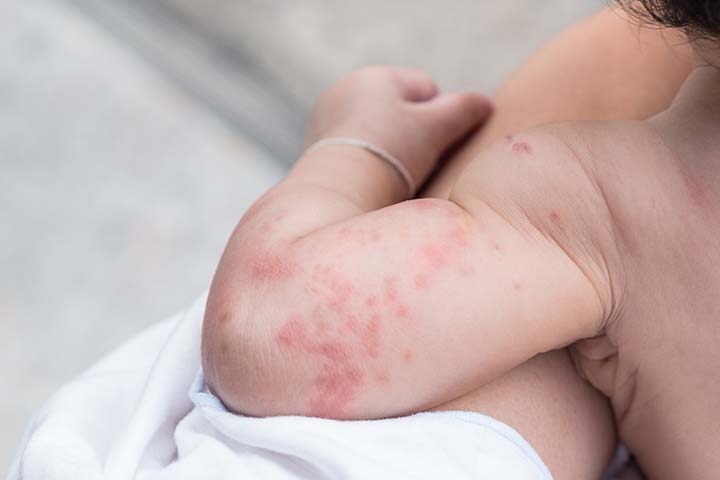Do you love munching nuts to satiate your hunger pangs in a healthy way while nursing your little one? Are you worried that nuts are potential allergens and may harm your breastfeeding infant? Well, if you can relate to any of the above situations reading this post is a good idea!
You need to consume a healthy diet while breastfeeding, as your breast milk is the only source of sustenance for your fragile newborn. Eating nuts while breastfeeding might be a good idea, as nuts are a rich source of vitamins and antioxidants. Can I eat nuts while breastfeeding? – that would be your big question. Read on to know more!
What Are Nuts?
A nut is a fruit that has a hard shell and a delicious seed inside. The seed is rich in essential nutrients, and you can consume it raw. There are many nuts available in the market, such as hazelnuts and chestnuts. Walnut and pistachios enjoy huge popularity as nuts though they may not fit the exact botanical definition.
What Are The Benefits Of Eating Nuts While Breastfeeding?
Nuts are a rich source of unsaturated fat, Omega-3 fatty acids, Vitamin E, fiber, Plant Sterols, and L-arginine. All these nutrients are beneficial for heart health. Intake of nuts can lower the LDL (bad cholesterol) level in your blood. It can work wonders for your heart in the following ways (1):
- Prevents thickening of blood and thereby reduces the risk of heart attack.
- Helps to keep the lining of arteries (blood vessels) free from plaque that causes chest pain and heart attacks.
- L-arginine present in nuts helps make the walls of arteries flexible and prevents clots and blockage.
- Fiber present in nuts helps in regulating bowel movements, lowering your cholesterol and reducing the risk of type 2 diabetes.
- Nuts are rich in antioxidants, which help eliminate free radicals from the body and protect it from oxidative stress.
- Nuts are rich in Vitamin E and, therefore, help in nourishing and moisturizing your skin and hair.
Can I Eat Nuts While Breastfeeding?
USDA recommends that a dietary plan for a breastfeeding mother should be balanced and wholesome. It advises lactating mothers to include vegetables, fruits, grains, dairy, protein food and fluids in their diet. You can go ahead and include nuts, as they are a rich source of proteins, dietary fiber, minerals, and vitamins; besides providing ample nutrition, they can also help you sustain energy throughout the day.
According to popular belief, if a pregnant woman or a nursing mother includes nuts and peanuts in her diet, it could lower her baby’s chances of food allergy. A research study analyzed the diets of 8205 mothers before, during pregnancy, and after childbirth. It supported the hypothesis that early exposure to the allergen could significantly increase tolerance and, therefore, could reduce the risk of food allergies in kids. However, it concluded that further research was necessary to validate the study findings.
However, if you, your spouse, or a family member have a history of nut allergies, it’s best to avoid eating nuts.
Aranda, a mother to a four-year-old boy, Cyrus, shares how she enjoyed eating walnuts during breastfeeding, “I ate walnuts daily throughout my pregnancy as I knew they were good for my baby’s brain and eye development. So, I continued to eat them after Cyrus arrived to help maintain my milk supply. It’s fair to say they are one of the best foods for all-day energy! (ⅰ).’’
How To Know If A Baby Is Allergic To Nuts?
A breastfed baby may develop a food allergy after the mother consumes certain food or drinks like cow’s milk, soy, eggs, seafood, wheat, nuts, eggs, and peanuts. According to the American Academy of Pediatrics (AAP), two or three out of every one hundred exclusively breastfed babies demonstrate an allergic reaction. In most cases, the reaction is to the cow’s milk in the mother’s diet.
The common symptoms of food allergy in babies are:
- Hard stools.
- Stomach ache.
- Spitting or vomiting.
- Skin rashes.
- Blood or mucus in the stool.
- Breathing trouble.
- Swelling of the face in rare cases.
If you see any of the above signs, consult your pediatrician immediately. If your baby is having trouble breathing, take them to the nearest emergency room.
If you suspect your baby might have a food allergy, it’s a good idea to note down your daily diet and watch out for food allergies in your baby. It will help you identify the food that proves to be an allergen for your infant and avoid its consumption while nursing him.
It is suggested that nursing mothers consume a nutritious and balanced maternal diet to support proper nutrition for their baby. Nuts are a great source of vitamin E, omega-3 fatty acids, fiber, and other nutrients. They also protect the heart by reducing the risk of heart attacks, preventing plaque formation in the blood vessels, and removing free radicals from the body. Including nuts is beneficial for them and may reduce the chances of food allergy in babies. However, if you, your partner, or your family members have nut allergies, it is best to avoid eating them. Regularly check for food allergies in your baby, keeping an eye on symptoms such as stomach ache, breathing issues, or rashes. Consult a doctor if you notice any worrying signs.
Key Pointers
- Nuts lower bad cholesterol levels and promote heart health.
- Nuts improve bowel movements, lower risk of type 2 diabetes, and protect from oxidative stress.
- Early exposure to nuts may reduce the risk of food allergies in children.
- Breastfed babies with food allergies may experience symptoms like hard stools, stomach aches, skin rashes, and breathing problems.
Exclusive breastfeeding has been linked to a reduced risk of nut allergies in babies. Learn more in this video.














